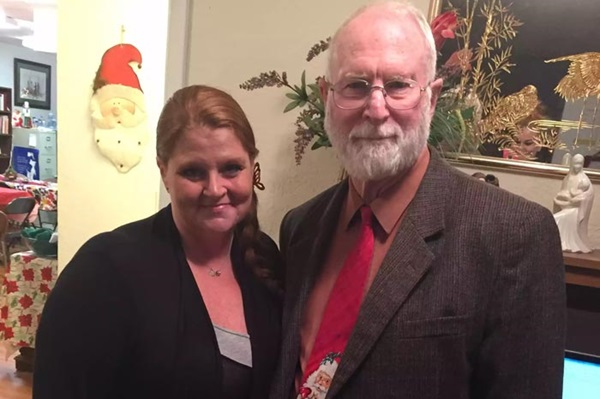When Robin Wertz was 40, she had lost custody of her children, lost her mother to cancer, and "sold drugs to make ends meet." When she was sentenced to a minimum-security prison for drug trafficking, she thought, "I was done, truly done."
But she wasn't done – and neither was her faith journey.
While in prison, she says, "I began to draw near to God." Although she became heavily involved in church while in prison, she was still "early in my journey" when she was released. It was then she heard of Exodus House and applied.
Founded in 1998, Exodus House is a co-ed facility primarily assisting non-violent and non-abusive offenders, many of whom have children. Funded in part by the Peace with Justice Sunday offering administered by the General Board of Church and Society, Exodus House was developed by the Oklahoma Conference and Stan Basler, executive director of the conference's Criminal Justice and Mercy Ministries (CJAMM).
Today the case manager for Exodus House, Wertz celebrated 13 years of recovery in March.
"All the things we teach, I learned; and it worked for me," she says. "I graduated the program, moved into my own apartment and kept going to church and work. I still have the same AA sponsor."
Wertz says about half of the residents graduate from the program and the recidivism rate is below 3.5 percent.
"Every time I pick up a new resident, I live my testimony over through them. We face the fears, the nerves and obstacles together. I am forever blessed to be a part of this ministry. It truly changes lives."
Exodus House typically serves 28-30 people per year from around 250 applicants. "[Exodus House residents] will be discharged, on probation or parole and at times on a leg monitor, but all come directly to us upon release," says Wertz. "The Exodus offers 10 [apartments] for residents. All of our apartments have a church sponsor and [the congregation] helps residents with gift cards and personal hygiene products when they arrive. Congregations donate much of our furniture.
"We are a 6- to 9-month program and require all our residents to be assessed by a minister and licensed alcohol and drug counselor," she says. "A treatment plan will be determined by his assessment and based on their addiction needs, their mental health, trauma and family and spiritual needs."
All residents attend 12-step Alcohol Anonymous, Narcotics Anonymous, Co-Dependents Anonymous and other meetings three to five times a week and receive random drug and alcohol screenings. They also attend church twice a week, Wertz says.
While they are here, they are not charged any rent," she says. "Our expectation is for them to have $1,200 saved by graduation. When they graduate, they take all their furniture and household goods with them and we will restock their apartments for the next resident."
Heather Peck Travis, freelance writer based in Glasgow, Ky.
One of six churchwide Special Sundays with offerings of The United Methodist Church, Peace with Justice Sunday enables The United Methodist Church to have a voice in advocating for peace and justice through a broad spectrum of global programs. The special offering benefits peace with justice ministries in the annual conference and through the General Board of Church and Society.
When you give generously on Peace with Justice Sunday, you give The United Methodist Church a voice in advocating for global peace and justice. Give now.





